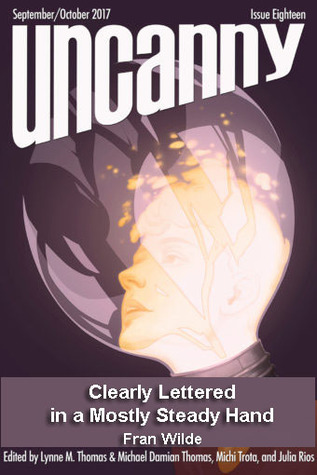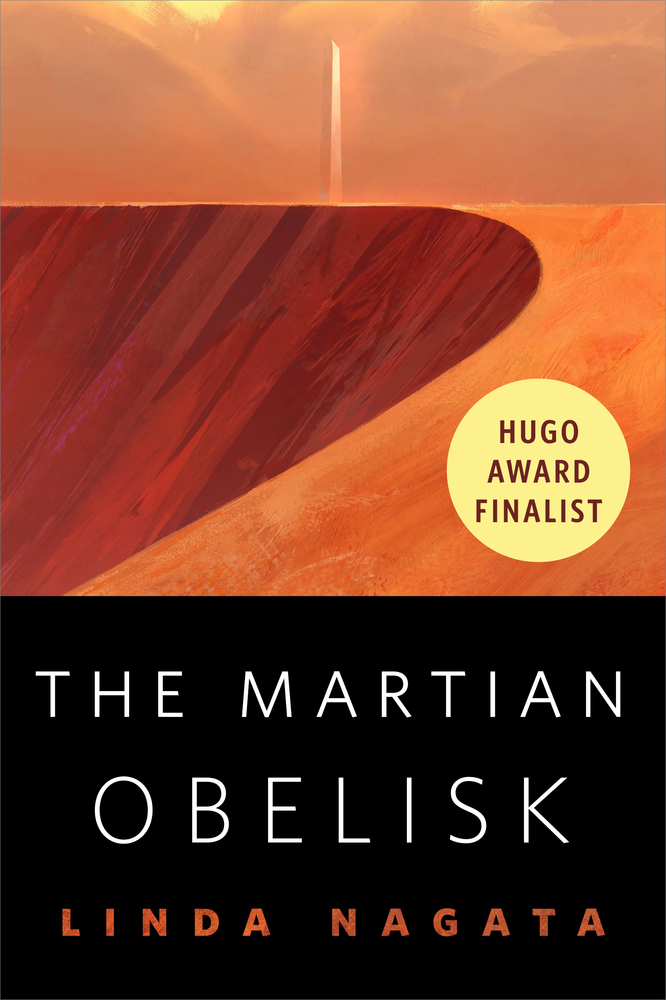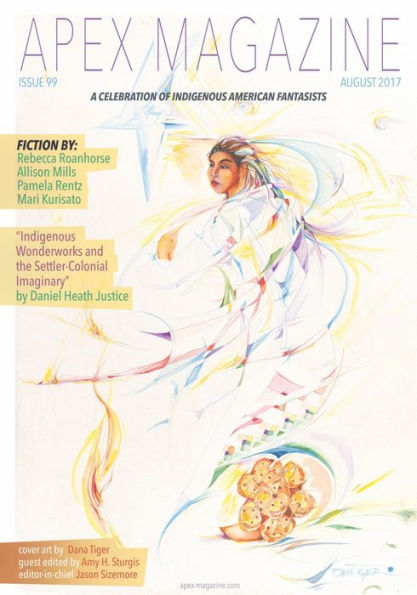Hugo voting is over and the winners will shortly be announced. So I’m getting in just under the wire with a review of the short stories! Reading this category is something of a challenge to myself, as I don’t read enough short fiction in general.
I’ve talked about these in ballot order and have not spoiled the ending for any of them.
“Carnival Nine” (2017)
Written by Caroline Yoachim
Published by Beneath Ceaseless Skies
Have you heard of spoon theory? It’s a metaphor to explain reduced energy and ability to complete tasks during a day. The idea is that everyone has a certain number of spoons and that certain tasks require more spoons than others. If you’ve ever heard someone say they’re out of spoons for the day, what they mean is that they don’t have the necessary energy or mental capacity to deal with additional tasks or interactions.
I bring this up because this story is a perfect allegory of spoon theory. The characters are all clockwork robots who are gifted by the “maker” with a certain number of spins every day. Zee has always been blessed with a larger number of turns than most others, and had vowed as a young robot to use her turns to help others. This vow is tested when she makes a son that isn’t blessed with many turns at all, only 4 or 5 a day, which most days isn’t enough turns to even say a sentence.
This story was beautifully written and had me crying by the end which is not traditionally very difficult to do.
“Clearly Lettered in a Mostly Steady Hand” (2017) 
Written by Fran Wilde
Published by Uncanny Magazine
This one leaves behind allegory for just being plain creepy. A museum curator leads you around the rooms of a museum. She’s perfectly polite and full of information, even when she’s dumping you in a bin with broken doll parts. About halfway through it took a rather drastic and creepy turn.
It’s interesting in that Wilde engages the reader by addressing them as “you” while the curator speaks in first person. It’s immersive and chock full of detail. For all that, it’s not personal. The curator doesn’t do these things to you because of who you are, which absolutely (in my mind) makes the entire thing even more sinister.
The construction of the story may be off putting to some readers. It asks a lot of the audience right from the start. It’s engaging, but I can see a lot of people ending the story saying “I don’t get it.”
“Fandom For Robots” (2017)
Written by Vina Mie-Jae Prasad
Published by Uncanny Magazine
I smiled the entire time I read this story. The first and only sentient robot is little more than a museum curiosity, a boxy little guy with claw-like appendages (I pictured Wall-E). During a Q & A session during a museum tour, a girl asks it if it’s ever watched anime, and then makes a recommendation about one that features a boxy robot just like it.
If the Computron had the ability to love things, you could say it loves this show. As it is, it takes the next logical step and starts writing fanfiction about the show.
If, like me, you spent a lot of time in late adolescence (or early adolescence, for the generation after me) writing fanfic about your favorite shows, this is definitely a story for you. I can see why it made this short list, as it’s brilliantly done, and fanfiction is definitely more mainstream now than it was when I was cutting my teeth on it.
 “The Martian Obelisk” (2017)
“The Martian Obelisk” (2017)
Written by Linda Nagata
Published by Tor.com
Earth is dying, humans have wrecked it, and in one last display of the true hubris of the human species, an old man buys the equipment for the last failed colony on Mars. The equipment that is, in fact, already on Mars. He then hires an architect to build him an obelisk, a gleaming tower that will outlast humanity’s demise. Seventeen years into the production of this obelisk, a rover appears on the horizon, possible proof that someone in one of the other Martian colonies survived.
This story was definitely sweeping in its scope, but it tacked on too many things at the end. The family on Mars, the possible granddaughter on Hawaii, but the Earth is still dying and the family on Mars probably will too. But the story still tried to end on a hopeful note that it hadn’t earned, and made the end pretty uneven in tone.
“Sun, Moon, Dust” (2017)
Written by Ursula Vernon
Published by Uncanny Magazine
A farm boy named Allpa inherits a sword from his grandmother that has the spirits of three great warriors in it, Sun, Moon, and Dust. Allpa’s grandmother fought with these great warriors and won many battles in her day, but Allpa has wanted nothing more than to farm his land, provide for his kingdom, and keep an eye on his goat. Much to Dust’s disgust, no amount of morning training can get Allpa to change his mind.
This story made me laugh and smile through most of it, which was a nice palate cleanser (I read these in ballot order). The goat was a funny secondary character, and I liked the way the warriors interacted with each other and with Allpa, giving the sword a long history without necessarily having to go into all of it.
“Welcome to your Authentic Indian Experience™” (2017)
Written by Rebecca Roanhorse
Published by Apex
This story is one of those holy s*** moments that just kept going. Jesse runs VR experiences for people wanting a taste of “authentic” Indian life. His wife hates his job, thinks it’s demeaning, but Jesse’s just happy to have a source of income. He meets a man who only goes by the name Jesse gives him, White Wolf, during an experience. This man is white, but then it turns out he might be part Cherokee. He and Jesse meet regularly in a bar for drinks where Jesse tells him all kinds of stories about his life. The end was a twist I didn’t see coming, that then twisted again for an added bonus.
It’s a perfect story about cultural appropriation and the traditional expectation that white audiences have for what they think of as authentic cultural experiences. And by perfect, I mean bone chilling.
So which one wins? The Hugo is a popular vote, so it all depends on the voting demographic. Rebecca Roanhorse won the Nebula with her story, “Welcome to your Authentic Indian Experience™,” and rightly so. It’s timely and authentic (without the sarcasm quotes). Will it get the popular vote? I’d hope so, but I’m not sure. Of these options, I think it’s the most deserving, though honestly I’d be happy with any of them.

No Comments